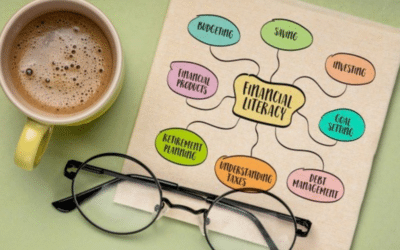By Jamie Wagner, Ph.D.
In short—it really doesn’t. Not directly that is. In an emergency meeting on Sunday, March 15, the Federal Reserve (the Fed) decided to cut rates to 0. But what rate exactly did they cut and what does that mean for you and for your mortgage?
What does the Fed do?
The Fed controls the money supply in order to maintain stable prices and stable unemployment. If you bought bread today for $3.50 and are not worried about that same loaf costing $10 tomorrow that is because the Fed is making sure inflation, and therefore prices, are under control. In order to control the prices, the Fed meets 8 times a year and occasionally other times as needed like Sunday’s emergency meeting. At these meetings, the 12 branches of the Fed meet and talk about what is happening in their regions. Because what is happening in Omaha and the industries we care about is very different than what is going on in Seattle, or Chicago, or Atlanta. Then based on economists’ analysis across the county the Fed determines what their monetary policy is going to be.
The Fed uses monetary policy to maintain stable prices. To do this they change “the rate”—but what rate?! Well, they change the Federal Funds Rate which is the rate at which banks can lend money to each other. And the Fed can do this because they are the banks’ bank—banks have accounts at the Fed and the Fed oversees all of this (credit unions have their own oversight and information is shared to the Fed to make decisions too).
But why might a bank need to lend money to another bank? Banks make transactions all day long—some people are depositing money, some are taking money out, some are even borrowing money to buy a house! So, at the end of the day when the dust clears, the bank needs to make sure they have enough in their reserves to satisfy the Fed. If they don’t have enough money they need to borrow from another bank who has more than they need (just for a day or two until their money reserves catch up). If banks don’t have enough in reserves, they can get in quite a bit of trouble.
How does changing “the Rate” affect me?
Rates tend to follow the Federal Funds Rate (FFR). So, as it gets cheaper for a bank to borrow money from other banks (FFR being lowered), they can more cheaply borrow money and therefore some other rates might fall as they pass along that savings. But as the FFR gets higher, banks must offset that cost by charging customers higher rates for their loans.
Below is a graph that shows the relationship between several rates, including the 30-year fixed mortgage rate) and the FFR. In general, the rates tend to follow each other but they aren’t identical. Meaning a .05% drop in the FFR does not mean that the mortgage rate is going to drop by that amount too.
Also note that rates may take time to follow, banks are a business and the interest they charge is basically the price of their loan. Think about if gas prices suddenly dropped by 50%, would the prices at Target drop by 50% too? No, but over time if the lower price was sustained, then you would imagine prices at Target and other stores to start dropping too.
Finally, the rates that most likely follow the FFR are shorter term rates such as the 10-year Treasury Bond. The Fed changes the FFR in order to change short-term lending practices so that they can quickly and easily alter the money supply and maintain their stable prices and unemployment levels. Mortgages (even shorter limit mortgages) are not short-term securities—they are long-term. This makes them even less likely to be affected by the FFR. Note in the graph above that both the 30-year mortgage and 30-year Treasury Bond are not following the FFR changes!
But how does this REALLY affect me?
While this may not affect your mortgage, and for most people you shouldn’t run out to refinance now (but talk to your lender on your specific case) the Fed lowering the rate does affect you. What the Fed is doing is trying to prevent or lessen the effects of a potential recession. They are trying to make it so businesses can more easily get loans from banks because banks can cheaply get money from another bank if needed. Preventing or lessening a recession is a major task that the Fed is taking on but they are doing so to the benefit of everyone.
Want to read more?
I hope I was able to clear some things up—it’s a confusing time right now. But if you want to read more check out these links.
- Here is a publication from the St. Louis Fed talking about how raising the FFR impacts rates including mortgage rates. It basically looks at this from the opposite perspective but still has really useful information for what is happening now.
- Matthew Graham a writer from Mortgage News Daily goes into a bit more detail about how the Fed changing the FFR effects mortgages (or lack thereof) in two recent pieces from March 3 and March 15.
- NerdWallet’s March 17th article offers some additional explanation and some extended reading for those interested.




